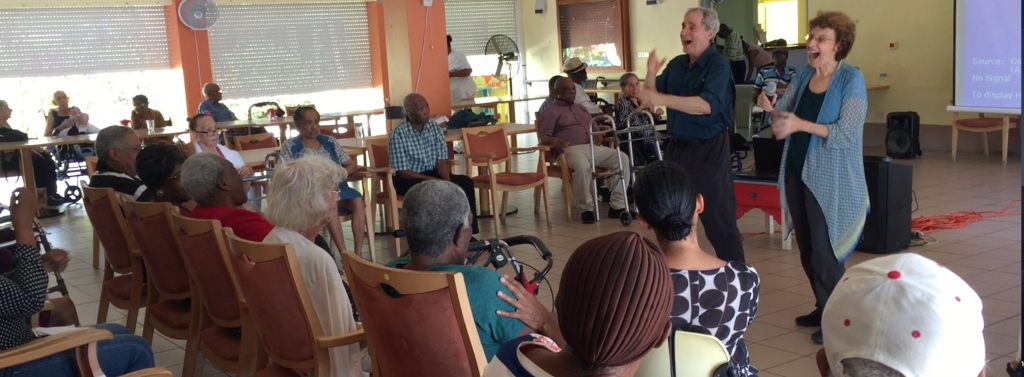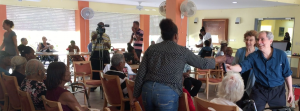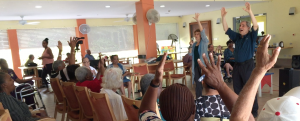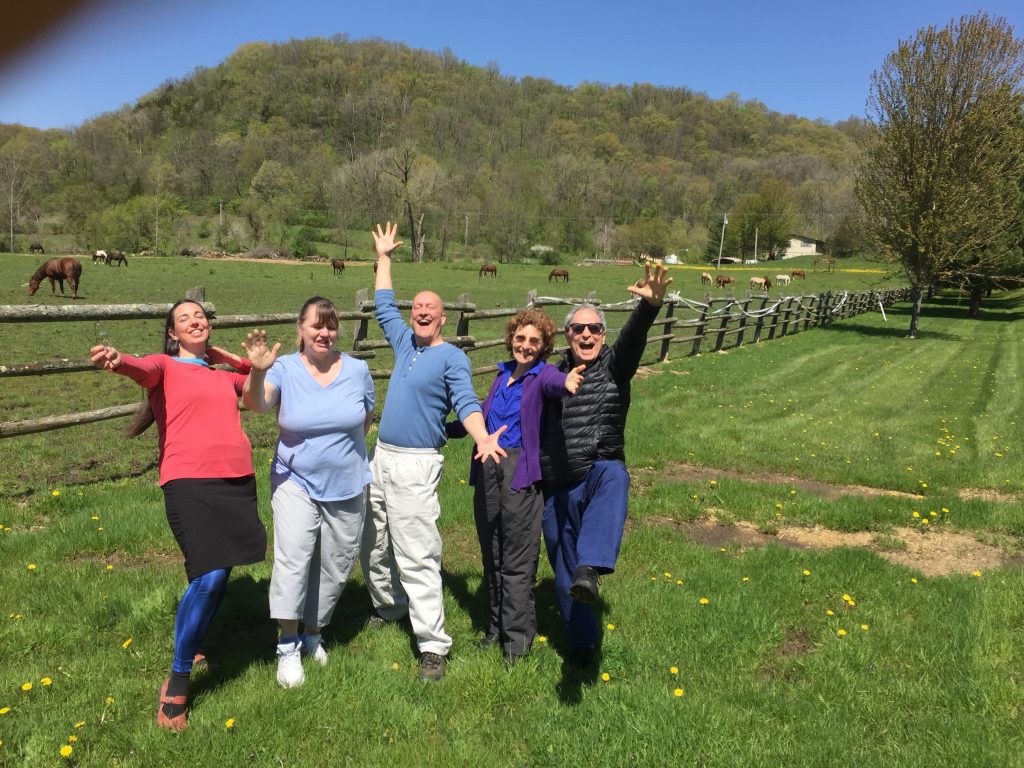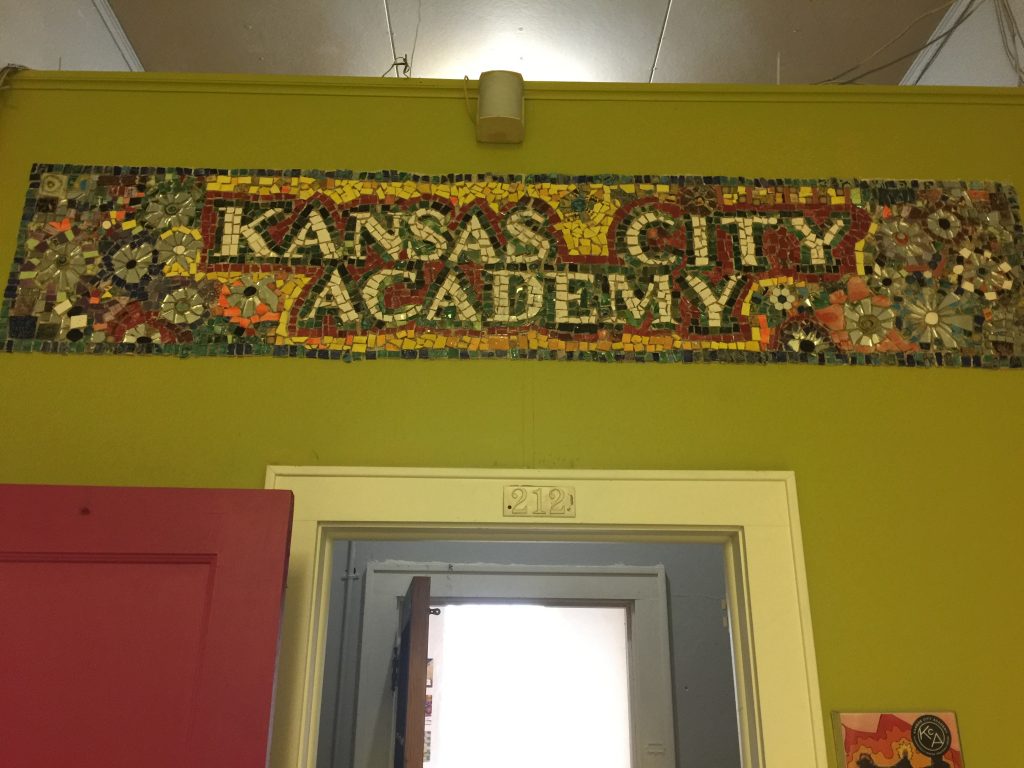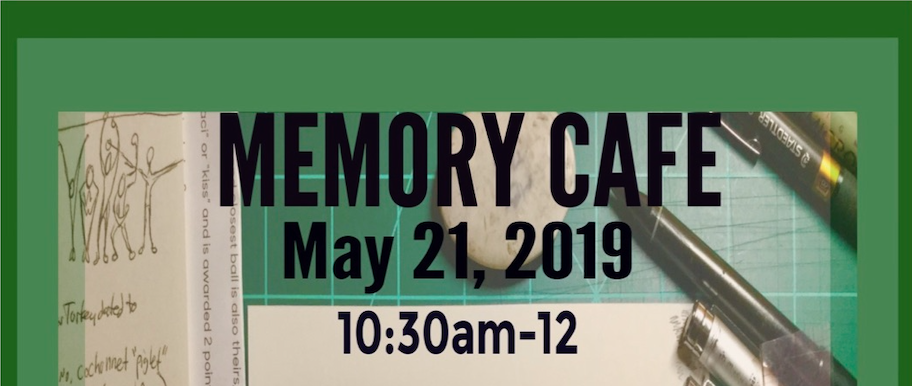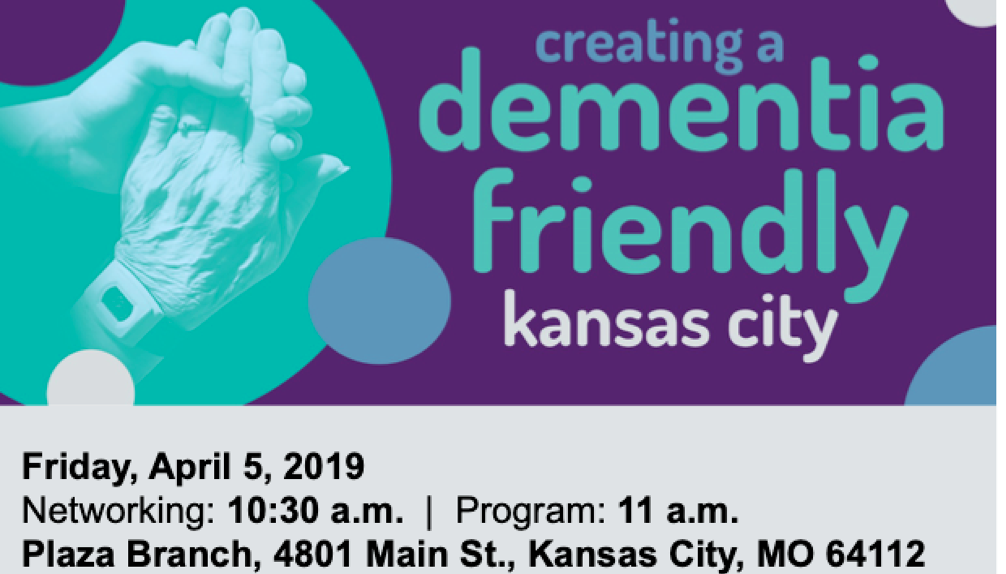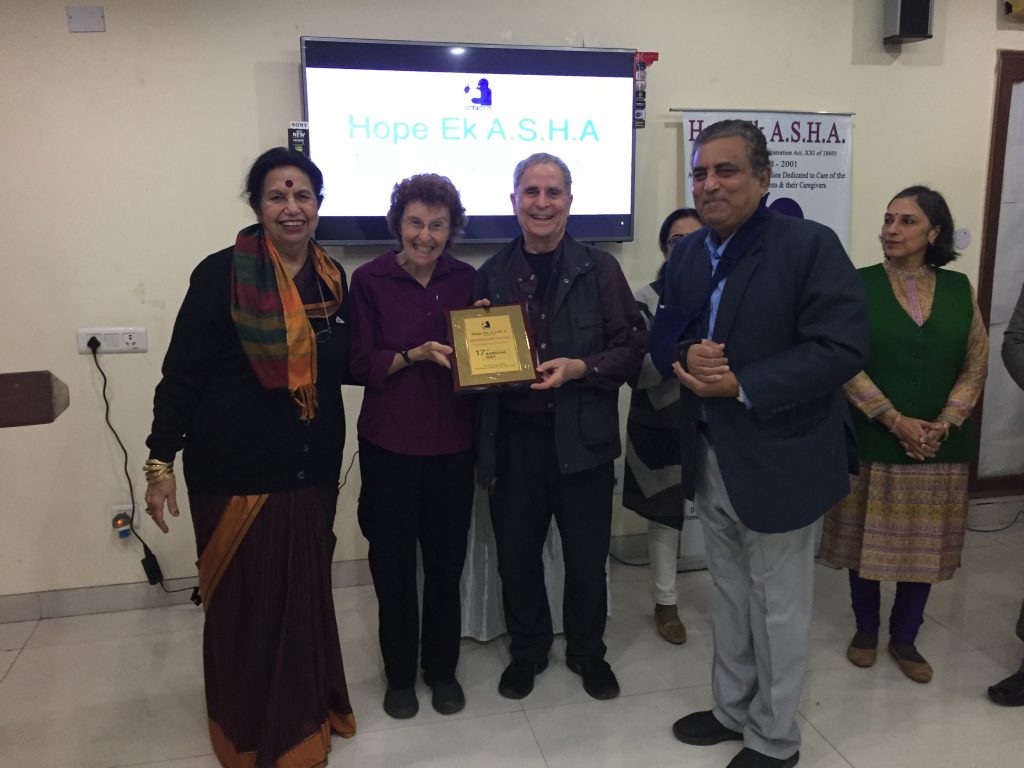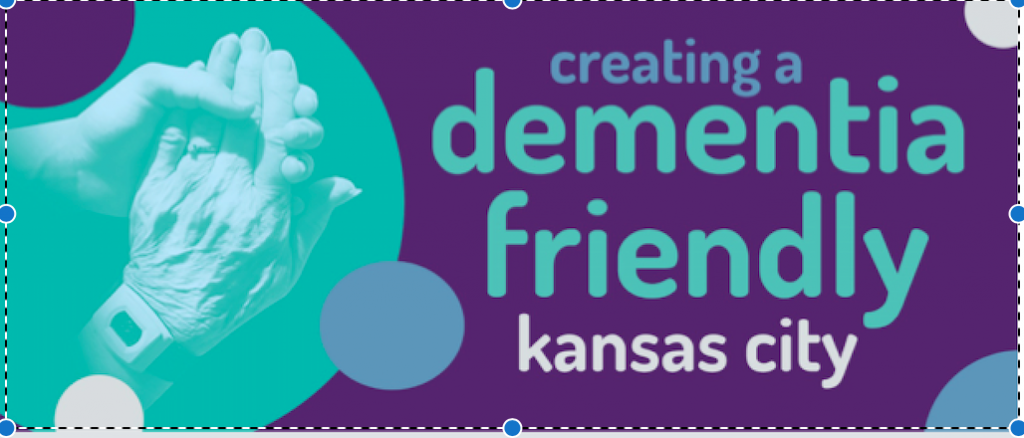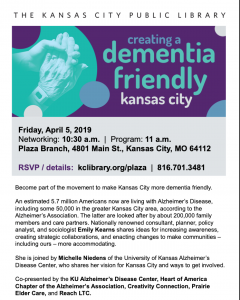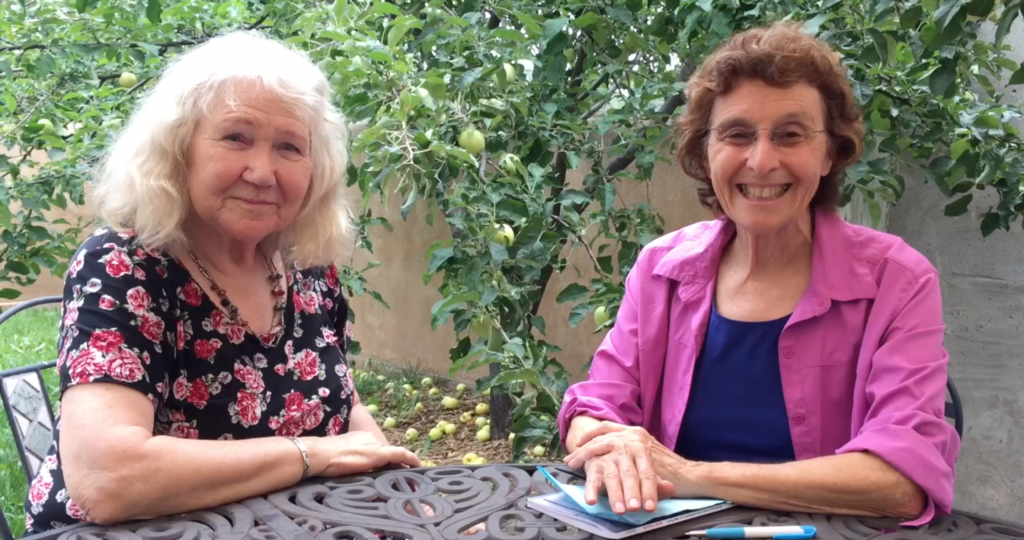Advocacy
Presenting to Community Members in the St. Martin’s Home, Along with Powerhouse Performer Raymond Jessurun
We knew that Raymond Jessurun was an amazing leader, organizer, and dementia advocate from our previous work with him in Philipsburg, St. Maarten. But we had no idea what a powerhouse performer he was until recently, when we presented with him at the island’s White and Yellow Cross Care Foundation.
On our way to the event, Raymond told us, “We have a mixture of people coming together, people from all over the world, people of varying abilities. We want to invite joy into their lives. We want everyone to connect and have fun together.”Ron and I loved the idea and focused on music and laughter as a common pathway. When we arrived at the care center, which is managed by the White and Yellow Cross Care Foundation, the community area was filled with light: the windows opened to the temperate breeze and lush outdoors. Indoors, in a large and cheerful room, people gathered in a semi-circle. Some had lived in Philipsburg all their lives. Others had relocated from other islands or countries, including Holland, Curaçao, St. Kitts, and Guyana.Raymond opened our session by telling everyone, “I want you to teach Deborah and Ron something about yourselves and about our country.”We all shared specific songs that reminded us of our families. Raymond jazzed us up by sliding into the center of the circle with a rousing a cappella rendition of Come on Let’s Twist Again. After a few bars, people were dancing in their seats. We kept the movement going as we conducted When the Saints Come Marching In, first in a stately tempo, then fast. We talked about the times of the day we liked to sing. Several of the care staff said they liked to sing throughout the day. One woman enjoyed singing in the afternoons. Another sang a poignant favorite of hers, about how she longed for someone to hold at night. She received a heartfelt round of applause.As part of our interaction about music and movement, we showed a video of Drum Safari engaging everyone in percussive activity during one of our KC Memory Cafes. We ended our session by giggling our way through some Laughter Yoga exercises, including drinking a delicious, no-cal, laughter milkshake.As a final treat, everyone serenaded us with a traditional national song, O Sweet Saint Maarten Land. (Link: https://www.youtube.com/watch?v=41capjzf7iQ) The ending stanza captures a taste of this beautiful country, but fails to mention its amazing people:“Oh I love thy Paradise,Nature beauty fairly nice,Oh I love thy Paradise,Nature beauty fairly nice.”
Laughing All the Way: Boosting Health and Happiness
“When You Laugh, you change,
and when you change the whole world changes.”
-Dr Madan Kataria, MD, Founder Laughter Yoga Movement
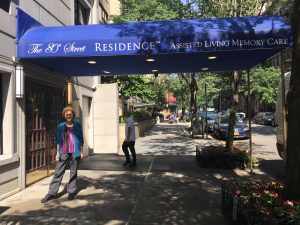 We were warmly welcomed into a parlor area, reminiscent of an elegantly aging aunt’s apartment. A piano waited patiently along one wall. There was a colorful bowl of fruit and a tempting array of pastries and fruit-infused waters. As we waited, we looked out into an outdoor garden and picnic area. The 80th Street Residency, a memory care community in Manhattan, created a warm, home-like atmosphere for its residents. Ron and I had come here to offer a laughter yoga class, hoping to boost our participants’ health and happiness. We worked with their activities coordinator, Jackie LaBau.
We were warmly welcomed into a parlor area, reminiscent of an elegantly aging aunt’s apartment. A piano waited patiently along one wall. There was a colorful bowl of fruit and a tempting array of pastries and fruit-infused waters. As we waited, we looked out into an outdoor garden and picnic area. The 80th Street Residency, a memory care community in Manhattan, created a warm, home-like atmosphere for its residents. Ron and I had come here to offer a laughter yoga class, hoping to boost our participants’ health and happiness. We worked with their activities coordinator, Jackie LaBau.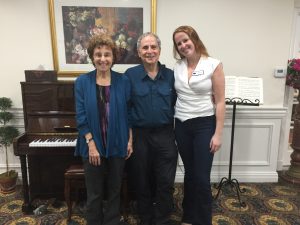
Here’s what we’ve learned about laughter yoga: often people look, act, and feel differently after they’ve experienced a session. There is a magic about intentionally laughing with a group. The experience of breathing, clapping, engaging in playful imaginings, and of course, laughing, soon softens the spirits. People feel energetic and connected. Everyone, including staff, residents, and us, leave feeling happier. That’s what happened in New York, just as it has every time Ron and I have led laughing sessions.
Back home in Kansas City, we laughed with the lively people at Jeanne’s Place, CareHaven’s day program for people living with early stage dementia. We have laughed with these wonderful folks before, and now they start giggling when we walk in.
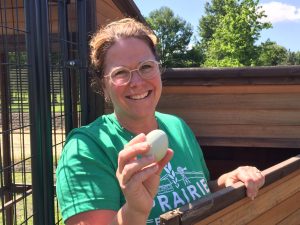 We also visited Mandy Shoemaker and her team at Prairie Eider Care, our area’s only Eden Alternative homes, and we had fun admiring their outdoor barnyard collection of silky chickens, a potbellied pig, and sassy ducks. Then we settled into their welcoming living areas. We sat in intergenerational circles with staff, family members, and residents, talking, singing, and laughing.
We also visited Mandy Shoemaker and her team at Prairie Eider Care, our area’s only Eden Alternative homes, and we had fun admiring their outdoor barnyard collection of silky chickens, a potbellied pig, and sassy ducks. Then we settled into their welcoming living areas. We sat in intergenerational circles with staff, family members, and residents, talking, singing, and laughing.
Dr. Kataria, the founder of Laughter Yoga, believes that inviting out our childlike energy and acting playfully is vital to living a balanced and healthy life. Plus, it’s tremendous fun. He says: “Laughter Yoga is an aerobic workout that helps uplift your mood within minutes by releasing endorphins from your brain cells. You often remain energized, relaxed, and in good spirits throughout the day. Laughter also makes our immune system stronger, increases oxygen intake, and reduces stress. Plus laughing with others builds a social bond and reduces feelings of isolation.”
In our groups, we created laughter milkshakes, with each person choosing their favorite flavor of ice cream. We looked at each other, waved, and laughed. We had a lot of dog lovers in our groups, so we imagined how a chihuahua would laugh. A member of the nursing team loved large dogs and she helped us to guffaw like a Great Dane. Most of our group loved baseball, so we sang, “Take Me Out to the Ballgame,” then substituted the words with “Ha Ha “ syllables, otherwise known as the Ha Ha Chorus. That chorus works for any familiar song and tickles your funny bone.
Ron and I learned Laughter Yoga from the amazing Robert Rivest, who is a master 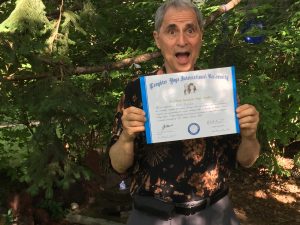 trainer and who studied with Dr. Kataria. But you don’t need to be a trained facilitator to bring more laughter into your life.
trainer and who studied with Dr. Kataria. But you don’t need to be a trained facilitator to bring more laughter into your life.
Quick Tips for Adding Laughter into the Day
•Look at the clock and laugh for one minute.
•When driving, laugh during red lights.
•When working out, pick a couple of exercises, such as squats and curls, and laugh while you’re doing them. (Want to get others laughing? Do this at the gym!)
•Use the “ha ha chorus” to bring giggles into your life. Take any song and substitute “ha ha ha’s” for the words. This works well in the shower, car, on walks and more.
Want to laugh more?
Visit laughteryoga.org and robertrivest.com
Contact Deborah Shouse and Ron Zoglin: 816-361-7878 Email myinfo@pobox.com Website: DemeniaJourney.org
If you are part of a memory care community in the KC area and you’d like to gift your residents with laughter, feel free to reach out to us at creativity@pobox.com
Click to view informative and inspiring short videos on our YouTube channel
Deborah Shouse is the author of Connecting in the Land of Dementia: Creative Activities to Explore Together and Love in the Land of Dementia: Finding Hope in the Caregiver’s Journey.
Talking about Dementia with Teens
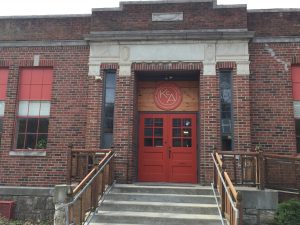 We were delighted to spend time with the bright and curious sixth and seventh graders in Mary Silwance’s class at KC Academy. They had read the young adult novel Hour of the Bees, which features a poignant relationship between a pre-teen girl and her grandfather who is living with dementia, and they wanted to learn more. During our short time together, talking about dementia with teens, we discussed:
We were delighted to spend time with the bright and curious sixth and seventh graders in Mary Silwance’s class at KC Academy. They had read the young adult novel Hour of the Bees, which features a poignant relationship between a pre-teen girl and her grandfather who is living with dementia, and they wanted to learn more. During our short time together, talking about dementia with teens, we discussed:
- How it might feel for people who are living with dementia
- Stigma and stereotypes
- Creativity and dementia
- Becoming an advocate
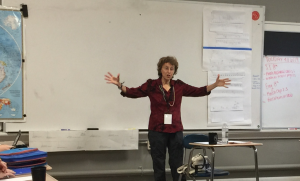 Here are a few excerpts from our lively conversation:
Here are a few excerpts from our lively conversation:
How many of you have ever misplaced something? How did you feel when you couldn’t find it?
How many of you have ever forgotten what you were going to say?
Have any of you ever overslept, woken up in a panic, and not known what day it was?
Those kinds of issues happen to most of us, at least occasionally.
But imagine how you would feel if they started happening all the time. You kept misplacing your cell phone, your homework, your library books. You couldn’t remember your address or your teacher’s name. What if you raised your hand to answer a question at school and the words you were going to say just disappeared. Or they came out all jumbled up? What if it happened so often that you started to worry about talking and became more and more quiet?
These are a few of the things that people who are living with dementia have to cope with.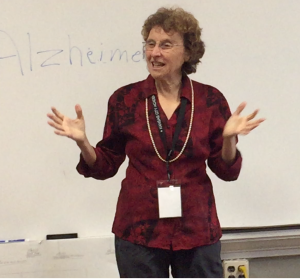
With most illnesses, people cluster around and want to help you. But some people with memory loss actually lose their friends. We know dementia is not contagious, so why would people shy away?
People are scared when their friends and family members start changing. They’re worried they won’t know what to say or how to communicate. They’re worried about making a mistake. But the only mistake is abandoning a person you care about.
Lots of people are working together to make life better for those who are living with dementia. And some are those are people who are living with dementia. They say, “Nothing about us without us,” which means, “Don’t make plans about our lives without consulting us.”
How you can be an advocate
- Watch your language. Don’t use the words victim or sufferer with Alzheimer’s or dementia. These are strong and courageous people dealing with a brain disease.
- Look for opportunities to spend time with people who are living with dementia.
- Don’t worry if you don’t know what to say. Look at the person. If they’re in a wheelchair or chair, bend or kneel so you can have eye contact.
- Try to find a quiet place to talk and listen. Some people are overwhelmed by too much noise.
- Remember to slow down because some people need extra time to answer questions.
- Seek ways to connect through arts and imagination, including music, drawing, cooking, gardening, and flower arranging.
Click here to experience part of the conversation
Click to view informative and inspiring short videos on our YouTube channel
Deborah Shouse is the author of Connecting in the Land of Dementia: Creative Activities to Explore Together and Love in the Land of Dementia: Finding Hope in the Caregiver’s Journey.
Come Have a Ball with Us!
Explore the fun of learning and playing Bocce Ball at our next Memory Cafe!
Help your neighborhood become more dementia friendly by attending our May 23rd Lunch and Learn. Please RSVP to heatherharrison@kclibrary.org
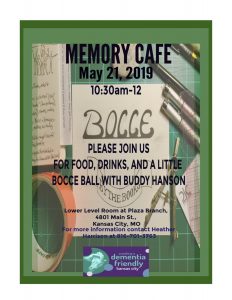
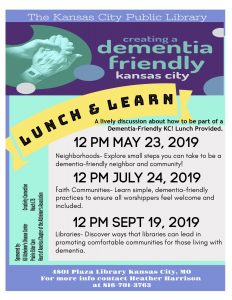
Click to view informative and inspiring short videos on our YouTube channel
Deborah Shouse is the author of Connecting in the Land of Dementia: Creative Activities to Explore Together and Love in the Land of Dementia: Finding Hope in the Caregiver’s Journey.
Creating a Dementia Friendly Kansas City
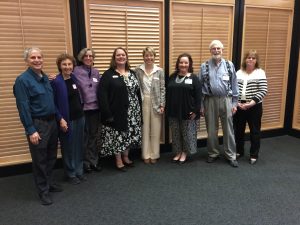 Luck. Kismet. The stars aligning. Those are all valid descriptions of our April 5th event, Creating a Dementia Kansas City.
Luck. Kismet. The stars aligning. Those are all valid descriptions of our April 5th event, Creating a Dementia Kansas City.
First, we were lucky to have two great speakers: Emily Kearns, PhD, formerly of Dementia Friendly Massachusetts and Michelle Niedens, from the University of Kansas Alzheimer’s Disease Center.
Then, a lovely splash of kismet when Emily and April Roy, Director of the Plaza Library, were invited to join Gina Kaufmann on KCUR’s Central Standard.
Thanks to Central Standard and lots of grass roots marketing, almost 100 people attended 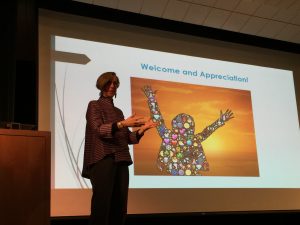 from many different sectors. Our attendees included representatives from The Alzheimer’s Association, The Nelson-Atkins Museum of Art, The Kansas City Symphony, The Renaissance Festival, KC Actors Theatre, The Naka-Kon Anime Convention, the Mayor’s office of Culture and Creative Services, as well as the medical and healthcare communities, senior services providers, the library community, first responders, faith communities, social work consortiums, people who are living with dementia and their friends and care partners, community volunteers, and more.
from many different sectors. Our attendees included representatives from The Alzheimer’s Association, The Nelson-Atkins Museum of Art, The Kansas City Symphony, The Renaissance Festival, KC Actors Theatre, The Naka-Kon Anime Convention, the Mayor’s office of Culture and Creative Services, as well as the medical and healthcare communities, senior services providers, the library community, first responders, faith communities, social work consortiums, people who are living with dementia and their friends and care partners, community volunteers, and more. 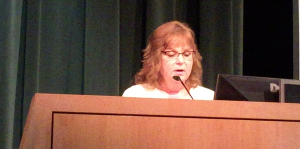
Our vision was beautifully articulated by our two speakers: “We envision Kansas City as a community where every citizen feels welcomed, valued, and engaged.”
We’ve only just begun and we welcome your support.
Click on this link to enjoy a brief sampling of our Dementia Friendly Kansas City official launch
Click here to preview some inspiring action steps
Click to view informative and inspiring short videos on our YouTube channel
Please consider joining us for our follow through Lunch and Learns.
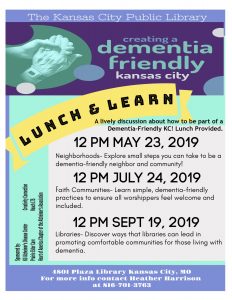
Deborah Shouse is the author of Connecting in the Land of Dementia: Creative Activities to Explore Together and Love in the Land of Dementia: Finding Hope in the Caregiver’s Journey.
Coming Together to Ignite Hope: Working with Dr. Chawla in New Delhi, India
Our Uber driver in New Delhi was a turbaned Sikh with a long gray beard. A sign hanging from the rear view mirror proclaimed, “This car respects women.” He deftly drove us through the city, navigating the melee wherein four lanes of cars compete in a two-lane space. Inside the NGO, Hope Ek A.S.H.A., the receptionist led us into Dr. Chawla’s office. Dr. Chawla has a rich voice and a magnetic presence. She is the catalyst for this center for caregivers, creating the service because of her own experience with her mother and Alzheimer’s. We were coming together to ignite hope.
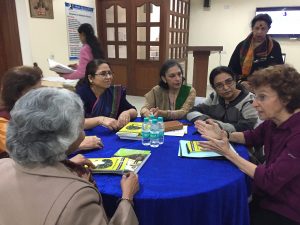
“We know how hard it is for the caregivers,” she says. She and her team help caregivers throughout New Delhi and indeed, throughout the world, educating them, visiting with them and their loved ones who are living with dementia, facilitating support groups, sharing stories and ideas, offering respite and financial support as possible.
For this event, she has gathered a group of doctors, caregivers, support staff, and more. First, some of her team show us activities they do with clients who are living with dementia. These include chanting, deep breathing, gentle stretching, tapping (EFT- Emotional Freedom Techniques), and a lovely heart opening exercise that affirms “We are healthy, we are happy.” They show us painting and games that strengthen memory.
Join us for these interesting exercises:
Then a caregiver from Mumbai Skypes in. Her voice is sad and her face is drawn and pale. She wipes at her eyes as she discusses her issues with her father. Instantly, one of our caregivers steps forward to offer advice. I share ideas with her as well. Then Dr. Sahi, leader of the New Delhi Laughter Academy, guides us in laughter exercises. Within minutes, we are all laughing, even our friend from Mumbai. When the session ends, the worn and weary caregiver has been transformed into an energetic and renewed woman, one who believes there is hope.
That’s is one of the reasons we all came together: our mutual hope and our belief that everyone needs support and a sense of community and purpose.
Experience our New Delhi caregiver’s event by watching this video:
Deborah Shouse is the author of Connecting in the Land of Dementia: Creative Activities to Explore Together and Love in the Land of Dementia: Finding Hope in the Caregiver’s Journey.
Creating a Dementia Friendly Kansas City: Join us and make a difference.
Pick the Best Care Community for Your Loved One
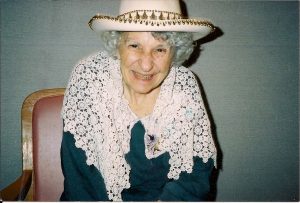
My hands were sweating as Mom, Dad, and I entered the memory care unit. We desperately wanted to pick the best care community for my mother. Pam, the head nurse, rushed towards us, arms outstretched.
“So good to see you again,” she told my father and me. She turned to Mom. “And you must be Frances. Paul has told me so much about you. I hear you’re a nurse too.”
She took Mom’s arm and they walked together down the corridor, talking. We followed and Pam stopped at a small dining area, where coffee and cookies, chocolate chip, one of Mom’s favorites, awaited us. Dad and I looked at each other and smiled. Maybe, just maybe, this was going to be all right.
We had already visited several homes and none of them seemed warm enough, caring enough, or quiet enough for Mom. What had won us over was Pam and her feeling for people who were living with memory loss, her determination to create community, her compassionate and easy way of communicating.
#
One of the most challenging experiences caregivers can face is finding the right community when your loved one needs care. Jytte Lokvig, PhD, regularly consults with families on this issue. Her new book, Moving & More, offers families concrete guidelines for finding the facility that meets their needs.
Click here to see our interview with Jytte Lokvig
When visiting a care community, Jytte suggests that we ignore the lobby and the landscaping. A beautiful lobby soothes the family’s soul but has little to do with the quality of care and engagement offered. Spend at least a couple of hours in memory care.
“Remember,” she says, “you are asking your loved one to live here. Stay on after your tour and blend into the scenery, so you can really get a sense of how staff and residents interact.”
Here’s what you want to learn:
- Does the facility practice “Person centered-care?
- Do residents participate in menu and activity choices?
- What is the staff/resident ratio?
- What are the staff retention rates?
- Do all staff receive mandatory first aid and dementia training?
- Are the family, nurse, personal care and activity staff involved in creating the resident’s care plans?
- Does the activities calendar offer a blend of entertainment and interaction?
- Are there both individual, small group, and large group activities?
- Does the staff acknowledge each resident, even with a simple greeting or compliment?
After you have a sense of the community, take your loved one to visit. Have a meal with the residents. Stay for an activity program.
“Several visits like this helps both of you feel more comfortable when the move comes,” Jytte says.
For more tips and information, visit Jytte’s site at http://www.alzheimersatoz.com and consider her book: Moving and More.
Deborah Shouse is the author of Connecting in the Land of Dementia: Creative Activities to Explore Together and Love in the Land of Dementia: Finding Hope in the Caregiver’s Journey.
Eight Steps to Help People Living with Dementia Feel at Ease during Holiday Gatherings
As we move into the holiday season, Ron and I think often of our parents who went through their last holidays with dementia: my mom Frances and his father Frank. We wanted to share the season with them in ways that felt safe, comfortable, and honoring so we gradually developed these tips. Recently, we shared the tips via email and had such a great response we also want to share them with you.
Several people wrote, “These ideas are good for anyone, not just those with memory loss.”
What great wisdom–to treat each person with the tenderness and consideration that we often reserve for someone going through a physical or emotional illness.
We’d like to share our tips and we’d like to learn from you: what other suggestions do you have for helping people feel connected at gatherings?
Eight Steps to Help People Living with Dementia Feel at Ease during Holiday Gatherings
- When you’re in a group, help the person living with dementia feel safe and comfortable by having a trusted friend or family member stay beside him or her, explaining the proceedings and fielding questions from others, as needed.
- Encourage people to say their name and maintain eye contact when conversing with the person who is living with dementia.
- Make sure the person can come and go from the group as needed. Create a quiet space where he or she can rest — or appoint a caring person to drive your loved one home when he tires of the festivities.
- Have something special for them to look at, like a family photo album or a favorite magazine.
- Choose background music that is familiar to them, music of their era played in a style they resonate with.
- Prepare a few of their favorite foods.
- When talking to them, don’t correct or contradict or try to pull them into the current reality. Simply listen carefully and let them talk.
- Appreciate them for who they are right now.
Here’s to a holiday season filled with grace, gratitude and generosity.
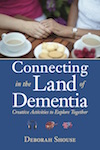
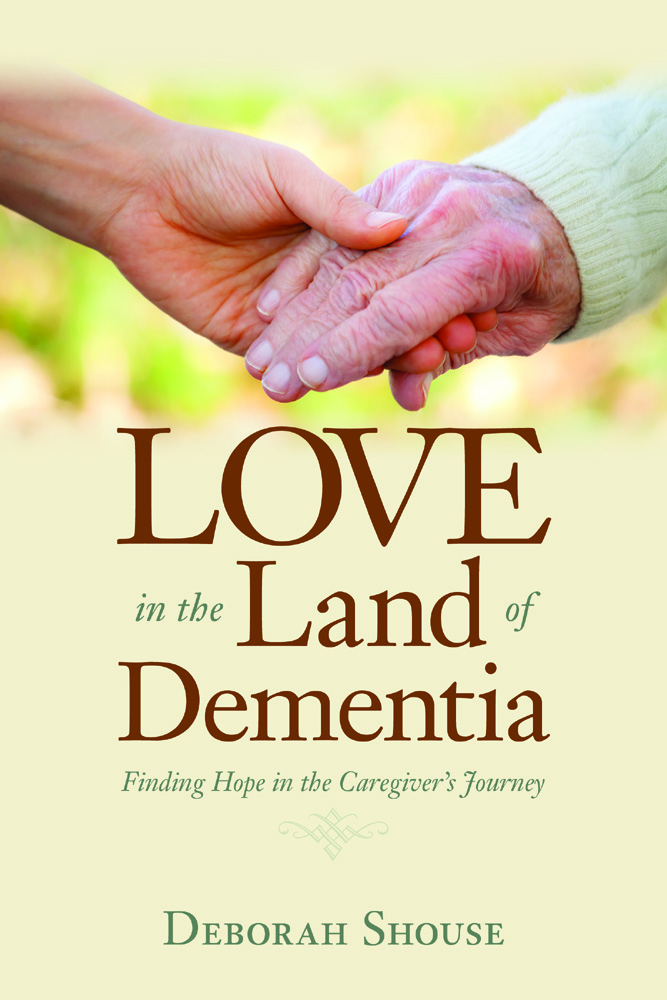
Deborah Shouse is the author of Love in the Land of Dementia: Finding Hope in the Caregiver’s Journey.
International Insights: Caring in Croatia
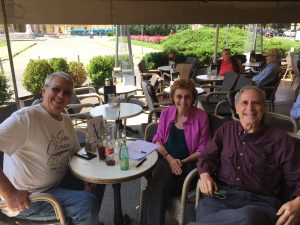 Even before Tomislav (Tom) Huić, Vice president of Alzheimer Croatia had a personal involvement with dementia, he was helping the Croatia Alzheimer’s Society with their marketing. As a professional marketer and co-founder of a successful ad agency, he wanted to help the fledgling, all-volunteer non-profit, and he often offered them his professional expertise. Then his mother began having memory issues and Tom became more involved. Today, he is one of the three full-time volunteers who run the 20-year-old agency.
Even before Tomislav (Tom) Huić, Vice president of Alzheimer Croatia had a personal involvement with dementia, he was helping the Croatia Alzheimer’s Society with their marketing. As a professional marketer and co-founder of a successful ad agency, he wanted to help the fledgling, all-volunteer non-profit, and he often offered them his professional expertise. Then his mother began having memory issues and Tom became more involved. Today, he is one of the three full-time volunteers who run the 20-year-old agency.
We met with Tom at the Hemingway Bar and Cafe in Zagreb, Croatia, 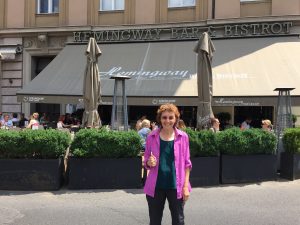 wanting to learn more about ways the society was educating and assisting people across the country and the region.
wanting to learn more about ways the society was educating and assisting people across the country and the region.
“Every year, we offer a professional workshop,” he says. That workshop, plus donations, provides the Association’s only operating money.
Tom understands the importance of collaboration and education. With a grant from the European Union, he and partners created dementia training materials for nurses. They presented the information to healthcare professionals in parts of Croatia and Slovenia. The programs were well received and he is working on presenting them in other parts of the region.
Tom also created a partnership with pharmacists in Zagreb. When elders came in to pick up medications, they were invited to take a short cognition exam. Sixty percent of the participants failed the test and they were given contact information for the Society. But only a handful of those contacted Tom and his team.
“We still have stigma here,” Tom says. “Plus, many people mistakenly think memory impairment is a natural part of growing older.”
They are collaborating with nursing homes and with governmental health agencies to provide guidelines for memory care beds.
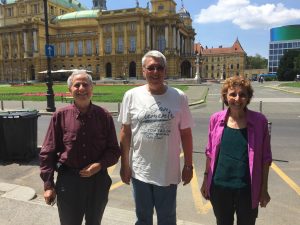 No money. No budget. Lots of ideas. Too few people and too few finances to implement them. The task ahead of Alzheimer Croatia seems daunting. But Tom and his team are not daunted. They are educating family and professional care partners through a variety of pathways, offering much needed information and support.
No money. No budget. Lots of ideas. Too few people and too few finances to implement them. The task ahead of Alzheimer Croatia seems daunting. But Tom and his team are not daunted. They are educating family and professional care partners through a variety of pathways, offering much needed information and support.


